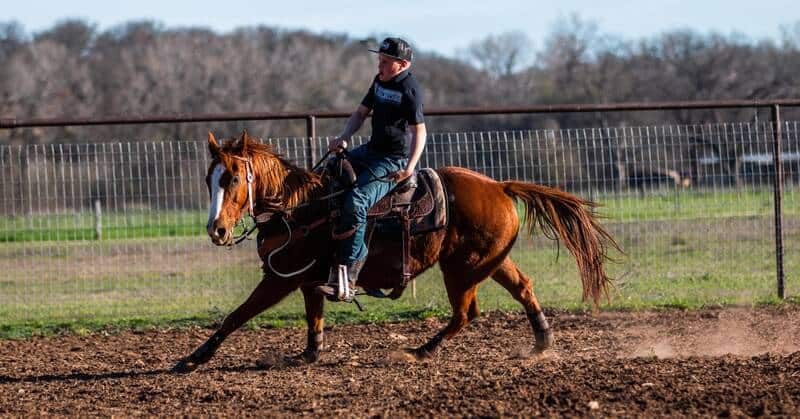Rearing in horses can be a challenging and sometimes dangerous behavior. Understanding and correcting this behavior is crucial for horse enthusiasts and trainers alike. In this article, we will delve into effective strategies for rearing horse correction to help you manage your horse with confidence.

Understanding Why Horses Rear
Before we delve into the solutions, it’s important to understand why horses rear. Rearing is often a response to fear, discomfort, or confusion. By recognizing these triggers, you can address the root causes of the behavior.
Common Causes of Rearing
- Pain or discomfort
- Fear of a specific situation or object
- Lack of proper training
- Confusion or mixed signals from the rider
Prevention Techniques
Preventing rearing is always preferable to correcting it later. The following strategies can help you avoid this behavior:
Proper Training
Training is key to preventing rearing. Ensuring your horse understands basic commands and feels comfortable in various situations can significantly reduce the likelihood of rearing. Consider reading our article on horse discipline training for more insights.
Comfort and Health
Regularly check your horse for signs of discomfort or health issues. A healthy horse is less likely to rear. Pay attention to their saddle fit, dental health, and overall physical condition.
Correction Strategies
Despite your best efforts, you may still encounter a rearing horse. Here are some strategies to safely correct this behavior:
Stay Calm
When your horse rears, it is essential to stay calm. Panicking can exacerbate the situation and make it more dangerous. Take deep breaths and maintain a steady posture.
Use Voice Commands
Effective communication can make a significant difference. Use clear and consistent voice commands to guide your horse back to a calm state. For more on this, consider our voice command training article.
Groundwork Exercises
Engaging your horse in groundwork exercises can help establish trust and respect. These exercises also provide an outlet for excess energy, reducing the likelihood of rearing.
Consult a Professional
If rearing persists, consult a professional horse trainer. They can provide personalized advice and techniques tailored to your horse’s specific needs. You can also explore different horse training methods for additional guidance.
Safety Precautions
Safety should always be your top priority when dealing with a rearing horse. Here are some precautions to keep in mind:
Wear Protective Gear
Always wear a helmet and appropriate riding gear. This protects you in case of falls or sudden movements.
Have a Safe Environment
Ensure your training area is free from obstacles and hazards. A clear space reduces the risk of accidents during rearing incidents.
Long-term Solutions
Implementing long-term solutions can help you manage rearing in horses effectively:
Consistent Training
Regular and consistent training builds trust and reduces anxiety in horses. Revisit basic commands and gradually introduce new challenges to keep your horse engaged and responsive.
Positive Reinforcement
Reward desired behaviors with treats or praise. Positive reinforcement encourages horses to associate good behavior with rewards. Learn more about positive reinforcement techniques.
Monitor Progress
Keep track of your horse’s progress and adjust your training approach as needed. Every horse is unique, so be patient and flexible in your methods.
Conclusion
Correcting rearing behavior in horses requires a thorough understanding of its causes and a commitment to consistent training. By addressing the root causes and employing effective correction techniques, you can help your horse become more confident and cooperative.

FAQ
Why does my horse rear when ridden?
Rearing when ridden can be caused by discomfort, fear, or confusion. It’s important to assess your horse’s health and training to identify the trigger.
Can rearing be dangerous?
Yes, rearing can be dangerous for both the rider and the horse. It’s important to address this behavior promptly and safely.
How can I prevent my horse from rearing?
Proper training, ensuring comfort, and addressing health issues are key to preventing rearing. Consistent communication and groundwork exercises can also help.
This article contains affiliate links. We may earn a commission at no extra cost to you.








